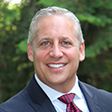Financial (and Emotional) Lessons from Dropping My Daughter Off at College for the First Time
Opening a 529 plan early and contributing often helped ease the financial burden of my child's education and let me focus on the difficulty of sending her off.

Profit and prosper with the best of Kiplinger's advice on investing, taxes, retirement, personal finance and much more. Delivered daily. Enter your email in the box and click Sign Me Up.
You are now subscribed
Your newsletter sign-up was successful
Want to add more newsletters?

Delivered daily
Kiplinger Today
Profit and prosper with the best of Kiplinger's advice on investing, taxes, retirement, personal finance and much more delivered daily. Smart money moves start here.

Sent five days a week
Kiplinger A Step Ahead
Get practical help to make better financial decisions in your everyday life, from spending to savings on top deals.

Delivered daily
Kiplinger Closing Bell
Get today's biggest financial and investing headlines delivered to your inbox every day the U.S. stock market is open.

Sent twice a week
Kiplinger Adviser Intel
Financial pros across the country share best practices and fresh tactics to preserve and grow your wealth.

Delivered weekly
Kiplinger Tax Tips
Trim your federal and state tax bills with practical tax-planning and tax-cutting strategies.

Sent twice a week
Kiplinger Retirement Tips
Your twice-a-week guide to planning and enjoying a financially secure and richly rewarding retirement

Sent bimonthly.
Kiplinger Adviser Angle
Insights for advisers, wealth managers and other financial professionals.

Sent twice a week
Kiplinger Investing Weekly
Your twice-a-week roundup of promising stocks, funds, companies and industries you should consider, ones you should avoid, and why.

Sent weekly for six weeks
Kiplinger Invest for Retirement
Your step-by-step six-part series on how to invest for retirement, from devising a successful strategy to exactly which investments to choose.
It seems like I blinked, and our oldest child, Abby, went from being a newborn to a college student. It was three years ago, but I still can't believe this major family milestone has come and gone, and let me tell you, it's been a whirlwind of emotions.
As we got Abby settled in on her first move-in day, I couldn't help but notice that there were basically two kinds of parents on campus: those who looked extremely stressed and frazzled, and those who looked contented and happy. Everyone's a little emotional, of course, but this clear distinction between parents got me thinking about the importance of preparation for the big day.
What can you do to make sure that your child's transition into college is as comfortable and relaxed as possible, not only emotionally, but financially, as well?
From just $107.88 $24.99 for Kiplinger Personal Finance
Become a smarter, better informed investor. Subscribe from just $107.88 $24.99, plus get up to 4 Special Issues

Sign up for Kiplinger’s Free Newsletters
Profit and prosper with the best of expert advice on investing, taxes, retirement, personal finance and more - straight to your e-mail.
Profit and prosper with the best of expert advice - straight to your e-mail.
Get Started Ahead of Time
Packing for a dorm room may seem like a major undertaking, but the list of things to bring is pretty predictable. The school will provide a list of things your child will probably need, but I suggest starting your own customized list months in advance so that every time you think of something (clips for the potato chip bag, cable wire for the TV, a shoe tree to hang in the closet, etc.), you can add it on. Also, set a shopping and packing deadline: Ours was three days before move-in day, and it was one of the best ideas we've ever had (full credit for it goes to my wife Sally, the real architect of the plan).
The same concept works for financial preparation. Start a 529 savings plan as early as possible, and be systematic and conscientious about contributing to it. It's just like making the shopping list ahead of time. I can't tell you what a relief it's been to know that we have resources set aside for Abby's education. Even though it's money we've saved over the years, it feels like a scholarship, and the tax-free growth was the best part of all.
What's a 529 plan? It's a tax-advantaged college savings vehicle sponsored by a state, agency or educational institution. While you don't get federal income tax breaks on contributions, any distributions for higher education are federal tax-free, and many states give additional tax breaks for participants. These plans are really the best way to go when it comes to setting money aside for college and enjoying tax-free growth, but be sure to speak to your financial adviser for all the pros and cons. (Go to Saving For College for more information about different 529 plans and how to set one up, and take a look at my recent article on the subject.)
Remember Your Basic Tools
If I had known how many people would forget basic tools such as a screwdriver, pliers and a box-knife, I would have opened a kiosk in the parking lot. Having the right tools for the job is an age-old piece of wisdom, but it can be far too easy to forget.
The same goes for having the right tools to pay for college. I've said it before, and I'll say it a hundred times: Start early and contribute often to your 529 plan. Ask any parent who has done it, and they'll tell you that simply getting the ball rolling on college savings brings enormous peace of mind later on.
Preparation is more than savings, though. Help give your child the tools to cope with being on their own by explaining concepts such as budgeting, banking and organization. We all know they'll roll their eyes at our lectures, but they need to hear them! The more they know ahead of time, the less there is to learn—because there is a lot to learn no matter what. In those first days, your child is thinking about everything from where to keep her toiletries and how the meal-plan works, to meeting new friends and learning where her classrooms are. Help reduce stress by sending your child to school with basic and important personal finance skills.
Take the Lead
On move-in day, the stressed parents invariably had stressed kids. So, manage your emotions and take the lead. Think of yourself as an exemplary Chairman of the Board, providing a good example and giving guidance and advice—but letting your child take the role of CEO. Staying calm and focused can help mitigate a lot of stress.
Once again, the same should go for college savings. Start as early as possible and make it a point to take the lead in your child's education. Staying calm and focusing on your financial goal while you're investing will lower your stress levels, so you can properly guide him or her into the next chapter of life.

Stay in the Picture Without Hovering
It's so hard to come home from dropping your child off… and knowing she's not there. But we made it a point not to place our own emotions on our daughter, who had enough on her plate as she started a new life at school. Instead, we reminded her that we'd always be there for her, but that we're confident in her ability to take on this transition.
Letting her go and restraining ourselves from holding her too close is hard to exercise. From the beginning, you want to protect your wobbly toddler from painful falls, insulate your middle-schooler from tricky social situations and, if you're like me, you might have to fight the urge to lock your teenager in the house. But your child has to experience life on her own: All you can do is focus on giving her the tools and confidence to cope with different situations and hope for the best.
See the original version of this article at www.blog.brad.pine.com.
Bradford Pine is a wealth adviser and president of the Garden City, NY-based Bradford Pine Wealth Group. He assists individuals to create wealth, simplify their lives and plan for retirement.
Anna B. Wroblewska contributed to this article.
Profit and prosper with the best of Kiplinger's advice on investing, taxes, retirement, personal finance and much more. Delivered daily. Enter your email in the box and click Sign Me Up.

Brad Pine is a wealth adviser and president of Bradford Pine Wealth Group, based in Garden City, N.Y. BP Wealth Group assists individuals and entrepreneurs to create wealth, simplify their lives and plan for retirement. Honesty, integrity and reliability are the foundations of Pine's investment philosophy.
-
 Nasdaq Leads a Rocky Risk-On Rally: Stock Market Today
Nasdaq Leads a Rocky Risk-On Rally: Stock Market TodayAnother worrying bout of late-session weakness couldn't take down the main equity indexes on Wednesday.
-
 Quiz: Do You Know How to Avoid the "Medigap Trap?"
Quiz: Do You Know How to Avoid the "Medigap Trap?"Quiz Test your basic knowledge of the "Medigap Trap" in our quick quiz.
-
 5 Top Tax-Efficient Mutual Funds for Smarter Investing
5 Top Tax-Efficient Mutual Funds for Smarter InvestingMutual funds are many things, but "tax-friendly" usually isn't one of them. These are the exceptions.
-
 One of the Most Powerful Wealth-Building Moves a Woman Can Make: A Midcareer Pivot
One of the Most Powerful Wealth-Building Moves a Woman Can Make: A Midcareer PivotIf it feels like you can't sustain what you're doing for the next 20 years, it's time for an honest look at what's draining you and what energizes you.
-
 I'm a Wealth Adviser Obsessed With Mahjong: Here Are 8 Ways It Can Teach Us How to Manage Our Money
I'm a Wealth Adviser Obsessed With Mahjong: Here Are 8 Ways It Can Teach Us How to Manage Our MoneyThis increasingly popular Chinese game can teach us not only how to help manage our money but also how important it is to connect with other people.
-
 Looking for a Financial Book That Won't Put Your Young Adult to Sleep? This One Makes 'Cents'
Looking for a Financial Book That Won't Put Your Young Adult to Sleep? This One Makes 'Cents'"Wealth Your Way" by Cosmo DeStefano offers a highly accessible guide for young adults and their parents on building wealth through simple, consistent habits.
-
 To Love, Honor and Make Financial Decisions as Equal Partners
To Love, Honor and Make Financial Decisions as Equal PartnersEnsuring both partners are engaged in financial decisions isn't just about fairness — it's a risk-management strategy that protects against costly crises.
-
 For More Flexible Giving, Consider Combining a Charitable Remainder Trust With a Donor-Advised Fund
For More Flexible Giving, Consider Combining a Charitable Remainder Trust With a Donor-Advised FundIf a charitable remainder trust puts too many constraints on your family's charitable giving, consider combining it with a donor-advised fund for more control.
-
 These Thoughtful Retirement Planning Steps Help Protect the Life You Want in Retirement
These Thoughtful Retirement Planning Steps Help Protect the Life You Want in RetirementThis kind of planning focuses on the intentional design of your estate, philanthropy and long-term care protection.
-
 A Wake-Up Call and a Healthy Dose of Terror: How to Survive Your First Days in Prison
A Wake-Up Call and a Healthy Dose of Terror: How to Survive Your First Days in PrisonThis young man needed to be scared straight after his mother expressed her fear that he was on a path to prison. Hearing these eight do's and don'ts worked.
-
 How Money Guilt Holds Women Back (and How You Can Send It Packing)
How Money Guilt Holds Women Back (and How You Can Send It Packing)Women shouldn't let guilt limit the way they manage their hard-earned wealth. It's time to separate emotion from financial decision-making.